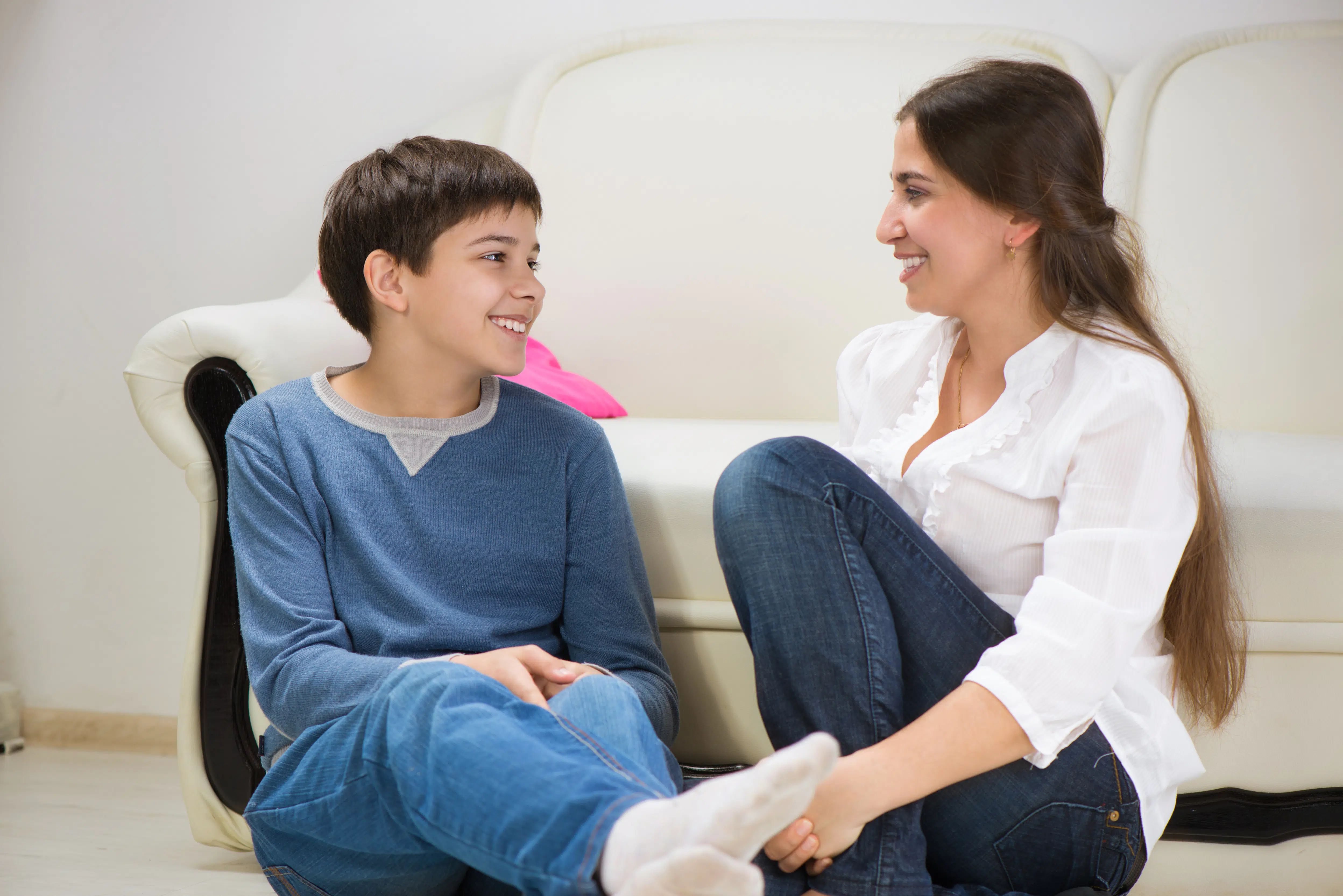The teen years come in fast and furious, bringing with it dramatic physical and emotional changes. Teenagers are known to have wild mood swings, roller-coaster emotions, and less than open communication.
Many parents see similarities between their teenagers and the stage they went through around age 3! Figuring things out on their own, discovering their identities, being aware of others around them and what they think, and fighting for their individuality and independence. Teenagers push away from their parents and often resist communication or connection, leaving parents feeling confused, frustrated, and sad.
How can you guide your teen when they don’t seem to want to hear your guidance? Or flat-out reject it?
How can you help them understand the long-term consequences of decisions they are making when they don’t necessarily want to see it.
How can you continue to keep a relationship with your teen when they ignore you and spend all their time with friends, on their phone, or playing video games?
Although it seems daunting and is definitely a complicated time in parenting, there are some important things parents can do to keep their relationship with their teenage children open and trusting, while at the same time giving them the space and independence they are after.
Chill Out
Parenting is hard. There is no manual and for the most part everyone is doing the very best they can with what they have. Many parents find themselves in constant conflict with their teenager when they over-analyze, catastrophize, and micromanage. This is an easy pattern to fall into when everything around feels chaotic and you’re not sure what the right answer is, on top of being genuinely concerned about your teen’s well-being and safety.
Remind yourself that the goal is to RESPOND and not REACT to your teenager.
Reacting is what we do automatically, the first thing that comes to mind when faced with a situation. We often react without thinking and this is where conflicts with your teen can escalate. You want to avoid this.
Instead, check in with yourself. Notice if your emotions are beginning to flare, stop and take some deep breaths, then decide how you want to respond in a calm tone. This will allow you to respond more thoughtfully rather than snap with a quick reaction.
Reaction without thinking can sometimes come off as judgemental, overreacting, or condescending to your teen and will shut the door to open conversation. So, breathe, stay in control and choose a response.
Ask Questions
When you do not understand something your child is doing or the choices they are making, get curious. Instead of barking orders or demanding a change, what questions can you ask to help you understand?
Make sure they are open-ended questions (in other words, questions that can not be answered with a simple yes or no) to encourage a conversation.
Questions like “Can you tell me more about that?” or “What do you think about that?” or “What do you think will happen?” can all lead the way into a conversation and even an understanding of their point of view. Your child is more likely to feel seen, heard and understood and is more likely to stay calm and – if you’re lucky – open up.
Listen
Less talking, more listening. Not everything needs a response from you (no matter how much you really want to respond!). Practice being comfortable with not speaking and simply listening. Aim for 80% listening, 20% talking. Most parents tend to fall into the opposite pattern, talking 80% of the time and listening 20%. This is a sure-fire way to get teenagers to shut down and stop engaging.
Also, when you are listening be sure to listen to understand, rather than listen to respond. When emotions are escalated it can be easy to not be talking while your teen is talking, but the entire time thinking of what you’re going to say as soon as they finish. This is not truly listening. You are listening to respond.
Instead, truly listen to them. Be open-minded. Watch their body language. Listen for changes in their tone. Seek to understand what they are trying to say when they don’t have effective communication tools to say it.
Use “I” Statements
An effective strategy for communication to avoid the negative cycle of attack and defend is to phrase your concerns in the form of an “I” Statement.
I feel (felt) ______________
When you ______________
Because _______________
Please (I’d like you to or I need you to) ______________
Framing your conversation in this way will help you resist blaming (“you always” and “why did you / why didn’t you”) and communicate how you feel and what you need in a calm manner. It also helps keep your conversation focused and moving forward.
Get Moving
Teenagers don’t often like to sit and talk. If they do, it’s typically about something serious. Some of the best conversations with teens is in the car, on a trip to the grocery store, taking a walk, jogging/running together, playing catch, go out to lunch, dinner, or ice cream, or some other activity.
You’d be surprised how much your teen will start telling you in those random moments when something pops into their mind. Seize those teachable moments. They are often short but mighty powerful.
If you and your teen are struggling with communication and finding a healthy way to make things work, there may be a larger concern. Adults and teens who struggle with anxiety, depression and/or ADHD often have high amounts of conflict in the family and trouble with healthy communication skills.
Get help from a professional therapist who is skilled in family dynamics and communication!
Let’s connect! Call us today to schedule an appointment.
940-222-8552 or email [email protected]

